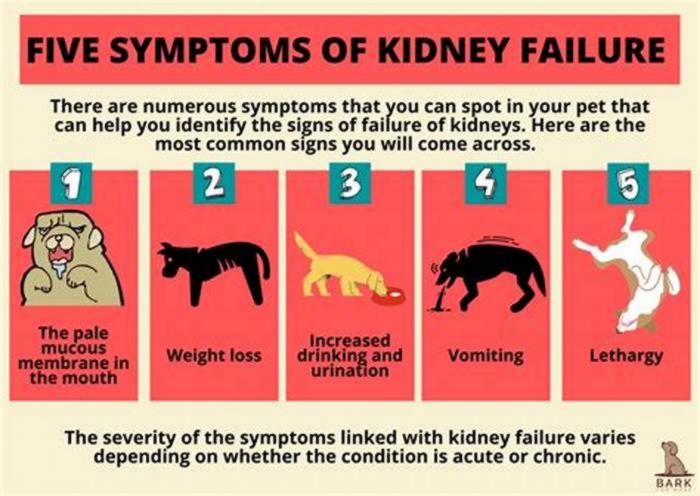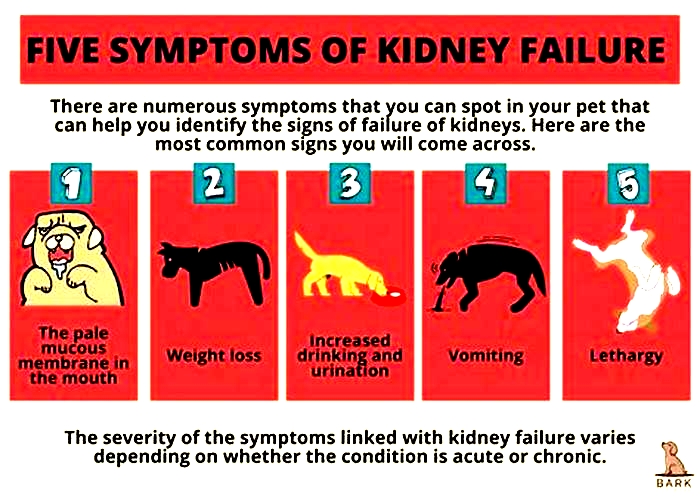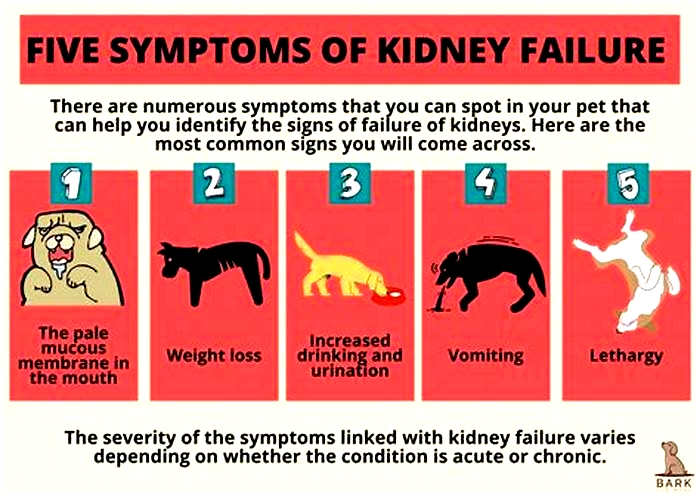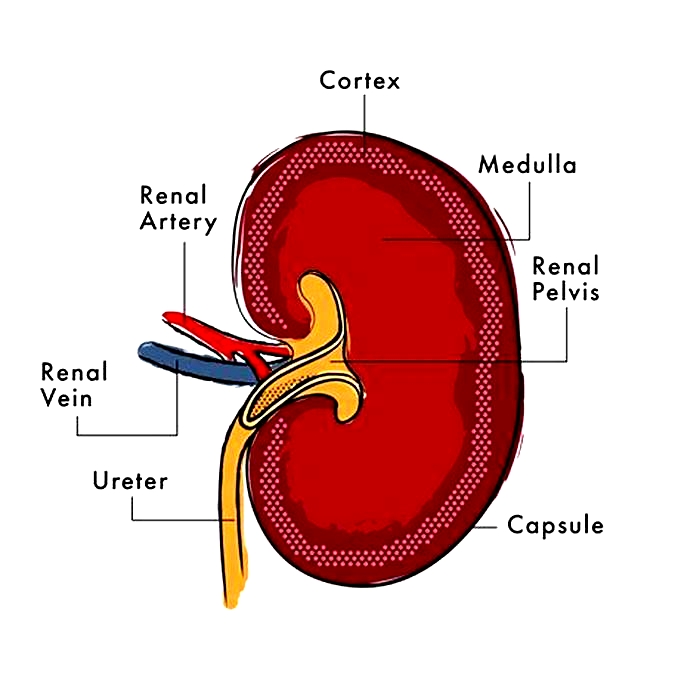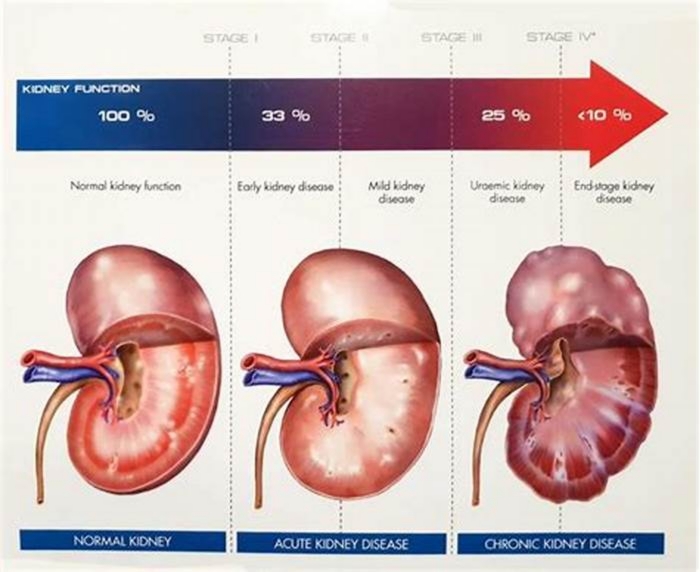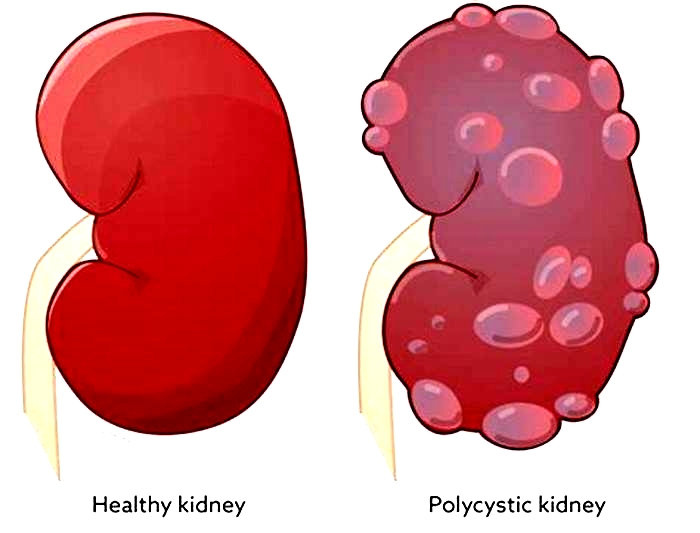kidney failure in dogs with lyme disease
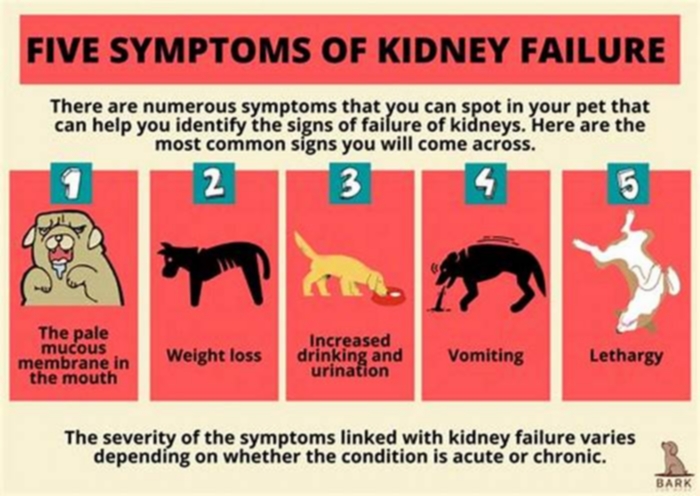
Dogs that have Lyme disease are said to be at a much higher chance of getting acute kidney injury (AKI) which can develop into chronic kidney disease (CKD), a new study shows.
A recently published study in November 2020 from Physicians Weekly states that if your dog has Lyme disease, theyre now at a greater rate of getting CKD. Initially, it plays out as acute kidney injury which happens when all of sudden, it develops kidney damage. If your dogs AKI lasts more than 25 days, its now considered chronic kidney disease which actually happens to a lot of these dogs.
Surely, youd want to take all suggested treatments from your vet but you can complement to make sure you protect those kidneys as much as you can. Chinese skullcap is a herb that has shown to benefit in these conditions. It has an antiviral Lyme activity to it. Including it with other medications/foods will ensure added protection and help get rid of Lyme disease.
Besides that, you can put them on a temporary renal diet, include high dose probiotics, and other kidney supporting supplements like Omega 3s, curcumin, vitamin E, etc.
Kidney Restore for Cats & Dogs is an amazing supplement to help support normal kidney function in pets with kidney disease. You can find it here.
Kidney Shield for Cats & Dogs is for those looking for a strong dose of Omega 3s for pets with kidney disease. You can click the link here to purchase it.
These supplements will optimistically prevent your dog from developing CKD. You can try out the Chinese skullcap as part of the anti-viral approach to get rid of Lyme.
Keeping your dog hydrated at all times can be another step in making sure he progresses. These are some things you can do that can help your dog get rid of Lyme disease. Be mindful to protect your dogs kidneys in these areas as the rate of damage is extremely high.
Can Highly-Polluted Areas Damage Your Kidneys?
We Discovered The Best Tea For Kidney Health!
For more enlightening reads and helpful videos, be sure to check out our YouTube Channel
5 Ways Lyme Disease Can Damage The Renal System
Lyme disease is a debilitating tick-borne illness that affects around 300,000 Americans every year. When a person contracts Lyme disease, it is often an arduous journey to find out what is causing their symptoms. Since Lyme disease can present similarly to other conditions (including MS, arthritis, and fibromyalgia), its hard to diagnose.
The only course of treatment for the Borrelia bacteria that causes Lyme disease is antibiotics. Once a positive result of Lyme disease comes back, an antibiotics course is administered in the hopes of ridding the body of the bacteria and restoring overall health. Antibiotics dont cure the disease, though, because the bacteria can remain inside the body, hiding from the medication and immune cells. This is what often leads to chronic Lyme disease and ongoing symptoms. But just how serious can these symptoms become? For example, can Lyme disease cause kidney failure?
The damage Lyme disease can do
Lyme disease can damage all of the bodys systems. Specifically, the illness can wreak havoc on:
- The heart and circulatory system
- The central nervous system
- Joints and bones
- Muscles
- The immune system
- Gastrointestinal system
- Skin
So, can Lyme disease cause damage to the renal system? Yes. Lets get to the bottom of how that occurs, and what can happen if it does.
What is the renal system?
The renal system is made up of several different parts of the body that are designed to regulate the urinary or excretory system. The parts of the body that make up the renal system are:
- Kidneys
- Ureters
- Urinary tract
- Urethra
The system is responsible for filtering out toxins, expelling them from the body through the urinary tract. The kidneys are the main organ involved in the proper functioning of the renal system, and they do more than just excrete things the body doesnt need. They are also in charge of keeping a healthy amount of certain minerals available and in the bloodstream by playing a key role in nutrient absorption.
Renal system dysfunction caused by Lyme disease
The renal system is a vital part of the overall functioning of the body. Without the ability to filter the blood, it can lead to the aforementioned symptoms and conditions.
The damage done to the renal system following a Lyme disease infection can:
- Cause the kidney filtration system to cease functioning, or function at a lower level.
- Aid in the formation of lesions on the kidneys.
- Cause the build-up of waste in the bloodstream.
- Lead to the leakage of proteins and red blood cells out of the system.
- Eventually cause kidney disease or kidney failure.
Can Lyme disease affect kidney function?
Kidney disease can be a prevalent problem in patients who suffer from Lyme disease. In cases of chronic Lyme disease-induced kidney disease, the bacteria causes lesions on the kidneys, and can also cause glomerular disease.
Glomerular disease is a condition that causes red blood cells and proteins to leak out of the bloodstream and body and into the urinary tract. The condition can also cause the build-up of certain wastes because it damages the kidneys ability to rid the body properly of that waste.

What are the symptoms of renal problems caused by Lyme disease?
When Lyme disease causes glomerular disease in patients, the symptoms can be serious and debilitating. They include:
- Edema (swelling) in the face, hands, feet, and other parts of the body
- Muscle and tissue loss caused by low amounts of protein in the blood
- Kidney disease leading to tiredness, insomnia, weight loss, itchy skin
- Blood in the urine
These signs and symptoms need to be addressed immediately as they can lead to permanent damage to kidney function, which can cause seizures, coma, or in the worst cases, death.
Other symptoms to look out for if you suspect the development of chronic kidney disease include:
- Gastrointestinal issues such as nausea, vomiting, and appetite loss
- Insomnia
- Chest pain or shortness of breath from the build-up of fluids
- Skin irritations such as pigmentation changes and unexplainable scratch marks
- Hypertension
- Muscle issues such as twitching and cramping
- Cognitive decline (brain fog, decreased mental alertness)
- Chronic fatigue and widespread weakness
Is there treatment for renal damage caused by Lyme disease?
As mentioned above, the only treatment available for Lyme disease is antibiotics. Following this, lingering symptoms need to be treated separately and specifically for their severity. If kidney disease does develop because of Lyme disease infection, it will need to be treated separately but in conjunction with other symptoms and chronic ailments.
To control the symptoms and slow further damage to the kidneys, doctors may prescribe medications for:
- High blood pressure
- Cholesterol
- Anemia
- Swelling
- Bone health
- A low-protein diet
These medications all play a critical role in the restoration of the renal system, but each one will be specific to a patients needs and their level of kidney damage. In the worst cases, kidney disease can progress to a dangerous level. This is called end-stage kidney disease. In this case, treatment will come in the form of dialysis or a kidney transplant. These more serious treatments are done only in the worst cases to avoid complete kidney failure.

What should doctors look out for?
If you suspect your patient may be experiencing renal disfunction caused by Lyme disease, its important to get medical history and perform the necessary tests. Blood tests will allow you to determine if there is a build-up of any proteins or wastes in the bloodstream. A urine sample will give you a good idea of what is being excreted from the body and whether or not blood is present in the urinary system.
The best way to battle renal system issues caused by Lyme disease is to diagnose early and begin treatment immediately. The longer these problems are left without treatment, the harder to treat and more serious they become.
Image by Robina Weermeijer on Unsplash
Like this:
Like Loading...
Kidney Failure From Lyme Disease In Dogs
How Are Kidney Problems Treated
Lyme Nephritis/Kidney Failure Secondary to Lyme Disease in a Dog
Initial treatment of kidney failure in dogs includes hospitalization and IV fluid therapy. Your veterinarian will determine what the underlying cause of the kidney disease is and treat it with appropriate medications and therapies. Dogs with kidney failure often must be hospitalized for several days to weeks to become stabilized prior to discharge.
If your veterinarian can stabilize your dog and wean them off of IV fluids without the kidney values rapidly increasing, they will send your dog home on a dog kidney failure diet which is specially formulated to be easy on the kidneys. They may also prescribe your dog oral medications to help reduce the risk of ulcers or to control electrolyte imbalances secondary to kidney failure. In addition, if your dog is moving more slowly and having a harder time moving around because of the kidney disease, consider getting a PawRamp.
The cost of treating kidney failure in dogs can vary depending on what the underlying cause of the kidney failure is and how severe the illness is. Mild forms of kidney disease which are caught early may only incur minor costs. Severe forms of kidney disease in dogs may cost hundreds to upwards of one to two thousand dollars to treat depending on the severity of your dogs disease.
What Is Chronic Renal Failure Is It The Same As Chronic Kidney Disease
Many people think that chronic kidney failure or chronic renal failure means that the kidneys have stopped working and are not making urine. This is not the case. By definition, chronic renal failure , or chronic kidney disease is the inability of the kidneys to efficiently filter the blood of waste products, not the inability to produce urine. Ironically, most dogs in kidney failure produce large quantities of urine, but the bodys toxic wastes are not being effectively eliminated.
Medications To Manage Proteinuria
Protein loss in the urine is a similar chicken and egg phenomenon to high blood pressure causing kidney disease and kidney disease causing high blood pressure. Consequently, vets also try to monitor and address urine protein levels in dogs with chronic kidney disease.
As the kidneys degenerate, the filter portion of the kidneys can become leaky. Proteins that the kidney should keep within the bloodstream are then able to leak out into the urine. So, protein in the urine is a sign of kidney disease, but that leakage of protein through the kidneys can also hasten kidney damage.
Your vet may prescribe oral medication to help decrease this protein loss.
You May Like: Stage 3 Lyme Disease Treatment
What Are The Symptoms Of Lyme Nephritis In Dogs
Most commonly, dogs may present with fever, shifting leg lameness, swollen joints, enlarged lymph nodes, lethargy, depression and anorexia. Less commonly, dogs will develop a protein losing nephropathy that can result in hypoalbuminemia, edema and eventually renal failure, which is known as Lyme nephritis.
Are There Tests For Lyme Disease
Several different blood tests are used when diagnosing Lyme disease. None of the tests are definitive, as they only measure whether or not a dog has been exposed to the bacteria they are unable to say for sure whether Lyme disease is the cause of any symptoms or whether it will cause symptoms in the future. In areas with high concentrations of ticks, 75% or more of dogs can test positive for the disease, though only 5% of those dogs may ever be symptomatic.
Blood tests may also show false positives in dogs that have received certain Lyme disease vaccines. Occasionally, testing may produce a false negative result, particularly if a Lyme-carrying tick bit the dog within the past four weeks. The bacteria require about four weeks of incubation before it accumulates in detectable levels.
Dont Miss: How Can I Tell If I Have Lyme Disease
Canine Kidney Failure Prognosis
The prognosis for canine kidney failure can vary depending on how the dog responds to the beginning stages of the treatment as well as the owners follow up care under the guidance of their veterinarian. In most cases, dogs will respond well to the treatment and maintain a good quality of life. Due to this, treatment is typically encouraged by veterinarians. In general, treatment and follow-up care will be relatively easy and affordable.
How Do Dogs Act With Ticks
If you start seeing the following symptoms, your dog may have a tick somewhere on their body: Licking and chewing: Your dog may lick and chew at a particular area on its body where the tick is located. Red, inflamed skin: Sometimes, the skin around the embedded tick can become swollen, inflamed, and red.
Dont Miss: Can Dogs Recover From Lyme Disease
What Is The Prognosis Of Lyme Disease In Dogs
Like other dog health issues, there are a few factors that determine your pets prognosis. The prognosis depends on the time of detection of the disease, Dr. Muller says. In the case of early treatment without manifest symptoms, the prognosis is good. However, if clinical symptoms are already present that have caused damage to the kidneys, heart, and nervous system, then the prognosis is poor.
How To Make A Low Protein Dog Food For Kidney Disease
Kidney Disease in Dogs and Cats
If your dog is suffering from kidney disease, or chronic renal failure , your vet may recommend that you put your pet on a low protein diet. Protein comes from foods like meat and eggs. By feeding your dog homemade dog food, you can control how much protein hell consume.
If your dog is in the early stages of CRF, he needs a diet of protein whereas a dog with severe kidney disease should not exceed more than 1 gram of protein per pound, daily. At this point, your pup will require more carbohydrates than protein.
Its best to have your vet work out the proper nutritional needs so you can provide the correct combination of ingredients. Experts recommend that in order to provide the proper nutrition, your dogs food needs to have:
- Moderate to high amounts of fat
- Moderate amounts of high-quality protein
- Low amounts of phosphorus
- Moderate amounts of low-phosphorus carbohydrates
- Plenty of water, juice, broth, and other liquids to keep your dog hydrated
Your dog needs total calories in fat, total calories in protein, and total calories carbohydrates.
Dont Miss: Does Lyme Disease Make Your Joints Hurt
Your Dogs Kidneys Are Integral For His Health
The kidneys of your dog are more important than you may realize. His kidneys help filter waste out of the blood. When the kidneys are not working correctly, toxins can begin to build up in the blood, and this condition is ultimately fatal.
Your dogs kidneys are also responsible for maintaining the water/salt ratio in the body. When sodium levels are off, Hypernatremia is the result . This is a potentially life-threatening condition that results in a volume reduction in the brain. Kidney disease can lead to hypernatremia, which is why it is so critical this condition is treated by the vet.
Recommended Reading: How To Get Dog To Eat Dry Food
What Can You Not Put In Homemade Dog Food
In making homemade dog foods, it is also important to know that there are certain foods that you should avoid.
For instance, ingredients like chocolate, xylitol, avocados, grapes, onion, and garlic should be avoided as they can be toxic for dogs.
Again, this is one of the beauties of making homemade foods. You have the authority on every ingredient that will be present.
Read Also: How To Get Rid Of Lyme Disease In Dogs
What Are Causes Of Kidney Failure In Dogs
What is renal failure in dogs? Acute Renal Failure. Most commonly associated with toxins or infections, acute renal failure causes kidney function to suddenly decline . Chronic Renal Failure. Geriatric Degeneration. Congenital Disease. Bacterial Infections. Toxicosis. End-Stage Renal Disease in Dogs.
Read Also: 2nd Stage Kidney Disease Symptoms
What Is The Renal System
The renal system is made up of several different parts of the body that are designed to regulate the urinary or excretory system. The parts of the body that make up the renal system are:
The system is responsible for filtering out toxins, expelling them from the body through the urinary tract. The kidneys are the main organ involved in the proper functioning of the renal system, and they do more than just excrete things the body doesnt need. They are also in charge of keeping a healthy amount of certain minerals available and in the bloodstream by playing a key role in nutrient absorption.
Recommended Reading: Lyme Disease And Chest Pain
Diagnosing Lyme Disease In Dogs
A tick must be attached to your dog for 36 to 48 hours before an infection is transmitted. To prevent Lyme disease, early removal of the tick is essential. Vets use a combination of clinical signs, medical history, and diagnostic tests to diagnose Lyme disease in dogs. There is no single test for Lyme disease, but there are tests to detect B. burgdorferi antigens in the blood. The presence of antigens indicates that the dog was exposed to the bacteria, but it does not mean the dog has Lyme disease. Your vet will likely perform diagnostic tests to rule out other health problems and determine whether or not the bacteria has affected the kidneys or other organs and systems. This may include blood and urine analyses, X-rays, and the collection and analysis of joint fluid.
Treatment Of Lyme Disease
There is only one way to treat Lyme disease. Your vet will give your dog antibiotics. Follow your vets instructions. Most antibiotic treatments take about 30 days. If your dog is still sick, you will either need a longer treatment or more tests to see if something else is making your dog sick.
Signs that the antibiotic treatment is working include a lower antibody count when testing. Antibody levels should go down 40%. This can take anywhere from 6-8 weeks if the case is caught early to 3 or more months if the case is chronic.
Read Also: What Is Lyme Disease Caused By
Vaccinate Dogs At High Risk
For dogs at high risk, in addition to acaricides and environmental controls, vaccination can be considered. The vaccines work best when administered before dogs are exposed to B burgdorferiinfected ticks.2,4,6 Consult the individual vaccine manufacturers directions with regard to immunity duration.
Although Lyme vaccines are not considered core vaccines, the ACVIM Consensus group states that they can be helpful in Lyme diseaseendemic areas, especially for clients whose tick prevention compliance may be less than ideal. In the absence of studies, whether Lyme vaccination needs to be boosted every 6 or 12 months remains uncertain.4
The ACVIM Consensus group was split on the recommendation for routine use of these vaccines but did agree that the circulating immune complexes that increase transiently after vaccination have no known negative effect on the vaccinated dog.4 Group members felt that the most effective way to prevent infection with B burgdorferi is year-round tick control and that vaccination provides another layer of protection in Lyme diseaseendemic areas.4
Although preventing Lyme disease can seem overwhelming at first, if taken a step at a time, we can offer clients a good chance of protecting their dogs from infection with B burgdorferi and subsequent development of Lyme disease .
Tick Exposure And Kidney Disease Risk In Dogs
Symptoms of Kidney Disease in Dogs Stages 3-5. Canine Kidney Disease Signs & Symptoms
Does exposure to tickborne disease indicate an increased risk for chronic kidney disease in dogs?
With another higher-than-average tick season looming, veterinarians should be preparing for the inevitable onslaught of tick-related veterinary visits. Even with knowledge of the dangers of tickborne illnesses, pet owners continue to put off annual screenings. But a new study aims to help change that narrative.
A retrospective study, conducted by IDEXX researchers, set out to determine whether exposure to tickborne disease is associated with an increased risk for chronic kidney disease in dogs in endemic areas.
Research Method
A total of 846,626 canine chemistry and urinalysis samples were obtained from the IDEXX Reference Laboratories database between July 13, 2015 and January 17, 2017. Dogs ranged in age from 1 to 25 all breeds and genders were represented.
Of the samples evaluated, patients exposed to infected ticks were defined as having a minimum of 1 positive vector-borne disease test result in their available history. CKD was defined as concurrent increased SDMA and creatinine for a minimum of 25 days with inappropriate urine specific gravity during that time.
RELATED:
- New Insights on Babesia canis Transmission in Dogs
- Pet Ownership Doubles Risk of Finding Ticks
Patient results were analyzed according to geographies known for transmission of both Borrelia burgdorferi and Ehrlichia canis , and then CKD risk was calculated.
Results and Implications
Recommended Reading: How To Protect Yourself From Lyme Disease
Avoid These Things In Your Low Protein Dog Food For Kidney Disease
There are things you want to avoid in your homemade recipes. Polyunsaturated vegetable oils can be bad for your dogs. Instead, its recommended to use fish oil, which is beneficial for chronic renal failure. Examples of polyunsaturated vegetable oils include:
Phosphorus can be harmful to your pet while hes got CRF so its important to regulate the amount he consumes. Phosphorus is found in egg yolks, bones, bone-in fish, cheese, and organ-meat.
Question: Can Lyme Disease Cause Kidney Failure In Dogs
Kidney failure: A less common but more serious consequence of Lyme disease is sudden kidney failure, with protein loss in the urine. In some dogs, kidney involvement appears at the same time as lameness but in other dogs, it appears 3-6 weeks after an episode of lameness.
Read Also: Lyme Disease Doctor Hudson Valley
What Are The Symptoms Of Each Type Of Lyme Disease
Acute Lyme disease is the least severe form of the disease. It often presents as lameness and inflammation in one or more legs a limb may be affected for a few days and then improve while another limb becomes swollen and weak. Other common symptoms include fever, fatigue, loss of appetite, and swollen lymph nodes.
Subacute Lyme disease is more severe than acute Lyme. In subacute Lyme, lameness and inflammation are also present, but they persist longer and cause more pain than they do in acute Lyme. Arthritis may also occur.
In chronic Lyme, the lameness and inflammation that are characteristic of the disease may still be present, but severe neurological and cardiac symptoms are more concerning. Irregular heartbeat and behavioral changes are common in this form of Lyme disease, as is kidney failure.
Lyme nephritis is rare most dogs with Lyme disease do not progress to this stage, which is caused by kidney damage from other forms of the disease. However, some breeds are more prone to it than others, mainly Labs and Golden Retrievers. Vomiting, muscle deterioration, and edema are all commonly seen in dogs with Lyme nephritis, which is usually fatal.
Is There A Lyme Disease Vaccine For Dogs Can All Dogs Take The Vaccine
There are 4 Lyme vaccines available in the United States for dogs. Lyme vaccination is considered a lifestyle vaccine, i.e. not all dogs need it, and the decision to vaccinate is an individual one and is not for all dogs.
The Lyme vaccine works by sterilizing the bacteria in the gut of the tick, preventing transmission of bacteria to the dog if they are ever exposed. Lyme vaccines appear to prevent illness in 60%86% dogs that are vaccinated, but not consistently in all dogs, and not for a very long duration of immunity.To ensure the vaccine provides optimum protection Dr. Wooten notes, your dog will receive two initial injections of the vaccine, two-four weeks apart, and then either annual or biannual boosters to maintain immunity.
While most dogs are tolerant of the Lyme disease vaccine, all dogs are different and may need another form of prevention. According to an article in Todays Veterinary Practice, Golden Retrievers should not receive the Lyme vaccine because of a genetic predisposition to develop Lyme nephritis, an inflammatory kidney disease. Fortunately, if proper tick prevention is utilized, vaccination should not be necessary. However, your veterinarian will help you determine the best form of Lyme disease prevention based on your dogs age, breed, size, any potential pre-existing conditions, and their overall health.
Recommended Reading: What Bacteria Causes Lyme Disease
Is There A Vaccine That Will Protect My Dog From Lyme Disease
A safe and generally effective vaccine is available for protecting dogs against Lyme disease. This vaccine is initially given twice, at two- to four-week intervals.
Annual revaccination is necessary to maintain immunity.
Annual revaccination is necessary to maintain immunity. Vaccination against Lyme disease will be determined by your pets lifestyle and individual risk assessment. Be sure to discuss any questions you may have regarding the type and frequency of vaccination with your veterinarian.
| Contributors: Ryan Llera, BSc, DVM Ernest Ward, DVM |
Our Favorite Homemade Dog Food Recipes
To jump to a recipe youre interested in, click on the link below. We also have some yummy organic dog treat recipes and treats made with Thanksgiving leftovers. You may wish to have a collection of pet food recipes on-hand at all times, making a cookbook an excellent choice. Dinner PAWsible is one of our favorites.
Note: The recipes below do not include serving size because portion sizes will vary depending on breed, weight, activity level, age, and the health of your dog. A recommendation is to feed your dog a comparable amount of ounces/cups to what you would usually feed in kibble BUT check with your vet to be certain.
You May Like: Vaccine For Dogs Lyme Disease

